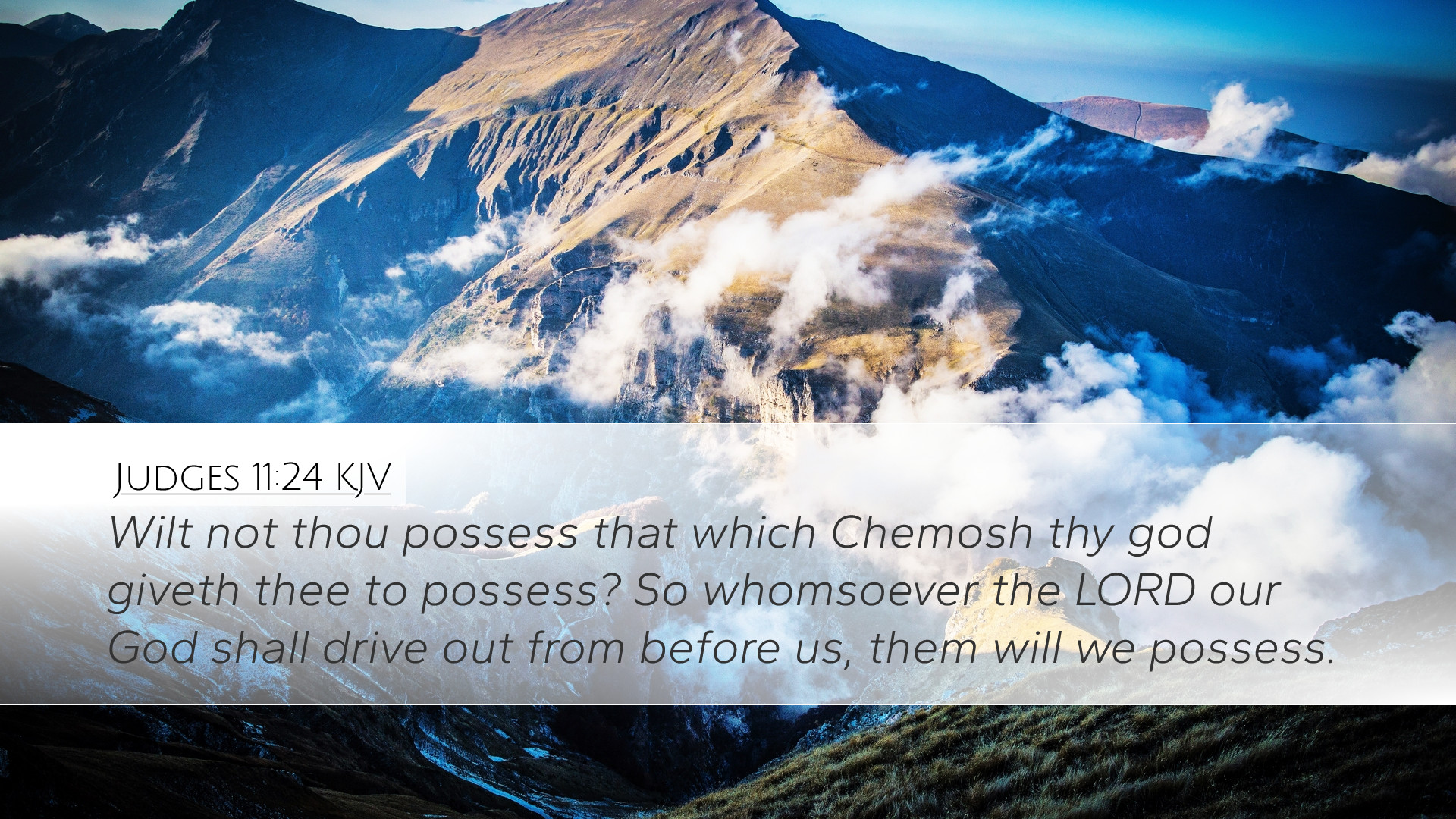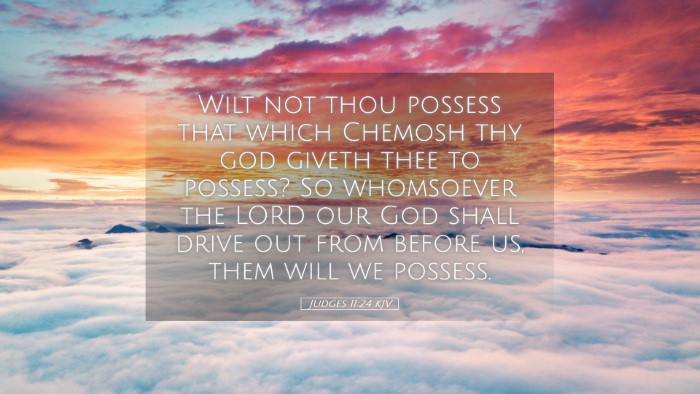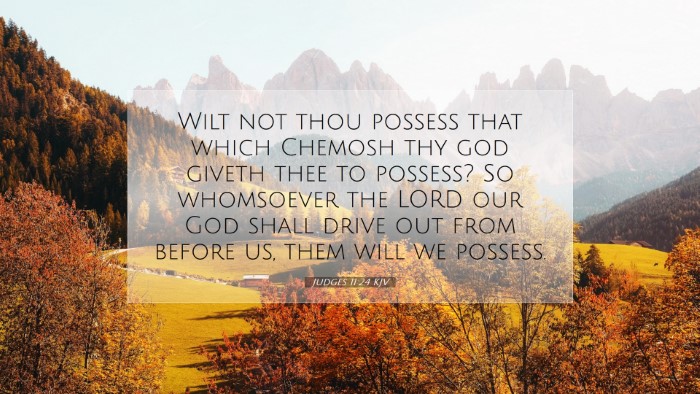Commentary on Judges 11:24
Judges 11:24 states, "Wilt not thou possess that which Chemosh thy god giveth thee to possess? So whomsoever the Lord our God shall drive out from before us, them will we possess."
Contextual Overview
This verse emerges from the larger narrative of Jephthah’s conflict with the Ammonites. The context is crucial as it portrays Israel's struggle in claiming territories contested with the Ammonites, and the theological implications of idol worship, particularly with reference to Chemosh, the god of Moab.
Theological Implications
This passage raises significant questions about divine sovereignty, the nature of God’s eventual judgment, and the role of idol deities in ancient Israel’s history. It highlights a theological contrast between Yahweh, the God of Israel, and Chemosh, symbolizing the spiritual warfare that characterized Israel’s existence amid surrounding pagan nations.
Divine Sovereignty
From the perspective of Albert Barnes, this scripture emphasizes the belief that each nation had its own god, and the possession of land was viewed as a direct blessing from that deity. Barnes argues that Jephthah is asserting the supremacy of Yahweh over Chemosh, indicating that the land promised to Israel by their God is rightfully theirs, just as the Moabites claim theirs through their god.
Covenantal Promises
Matthew Henry elucidates the covenant promise that God made with the Israelites, assuring them of their right to claim the land. He suggests that Jephthah's argument serves not only as a defensive approach to asserting Israel’s claim but also as a proclamation of faith in God’s faithfulness to His promises. The implication here is that God's word is binding and His grants are irrevocable.
Contrast with Pagan Worship
Adam Clarke emphasizes the differences in the nature of god worship present in Jephthah’s comment. The implication that Chemosh gives land to the Moabites serves as a stark reminder of the spiritual pitfalls of idolatry. Clarke suggests that there is a stark contrast in the impulse to war and possess land through divine sanction as opposed to the idolatrous quarry of Chemosh.
Historical Context
In the historical context, Israel’s battles with neighboring nations were not merely political but were infused with religious undertones. The desire to possess the land was a manifestation of faith in God’s promise of inheritance. The Ammonites and Moabites had their own histories and entitlements based on their beliefs, leading to ongoing conflicts with Israel. Analyzing this through the lens of the ancient Near Eastern societal structure, it is clear that land acquisition was tied to divine favor.
Practical Applications
For contemporary pastors and theologians, this verse serves several applications:
- Understanding Divine Authority: The assertion of God’s dominion over earthly conflicts encourages believers to rely on divine guidance in all aspects of life.
- Faith in Action: Jephthah’s approach highlights the importance of faith when confronting adversaries, demonstrating that spiritual fortitude is essential in spiritual battles.
- Warning Against Idolatry: The reference to Chemosh serves as a powerful reminder of the dangers of placing trust in anything apart from God, challenging believers to evaluate their own 'gods' that might compete for their loyalty.
Conclusion
Judges 11:24 is much more than a phrase that captures a historical conflict; it is a profound theological statement encapsulating God's sovereignty, the folly of idolatry, and the promise of divine inheritance. As Jephthah lays out his case to the Ammonite king, the theological debates from this scripture echo throughout biblical history. As modern-day readers and interpreters, we are called to examine our own convictions and the allegiances we hold, ensuring that our claim to the promises of God is rooted in a genuine relationship with Him.


